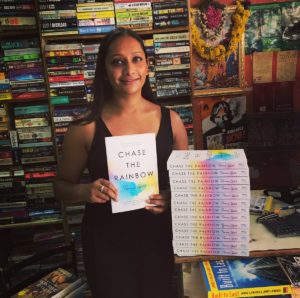Of books tackling medical science
Of late there have been a deluge of books making exploring medical science accessible to the lay reader too. This recognition of making technical knowledge available to the public in manageable morsels is a remarkable feat.
Maylis de Kerangal’s Mend the Living is a novel about a young man who goes into an irreversible coma after a car accident. His organs, including the heart, are to be harvested. Mend the Living is primarily about the heart being transplanted. It is a haunting book for sharing different perspectives of all those affected by the death of Simon Limbeau. It is not only his immediate family — his parents, younger sister and girlfriend, but also the medical personnel responsible for Simon and the patients who would be receiving his organs. It is an extraordinarily mesmerising story, almost poetic in its narration, which has been translated fluidly from French into English by Jessica Moore. Here is a fabulous interview of the author by the translator published in Bomb magazine who insists “I have a strong conviction: I consider the translator as a writer, an author. I always have the feeling of being a translator myself, translating French into another language, which is the French of my books. All this nomadism of texts, the movement from one language to another, I find it so stimulating and rich. I don’t want to say at all that books’ themes, subjects, and stories don’t interest me, but for me what comes first is how a book provokes an experience of the world via language. So all these foreign languages remind me of the fact that I feel like a translator myself, and that translators, in a way, are the authors of these books.” Mend the Living, a work of fiction, won the Wellcome Book Prize 2017 — a surprising choice given that most often it is awarded to non-fiction.
Poorna Bell’s memoir Chase the Rainbow is a tribute to her husband who committed suicide. He was a journalist  who was able to mask effectively his acute depression and heroin addiction from everyone including his bride! It was only some years after her wedding did Poorna discover the truth by which time they had not only lost their home but were deep in debt. Mental health issues plague many but it is rarely discussed openly for the social stigma attached to it. Slowly there is a perceptible shift in this discourse too as more and more people are sharing their experiences of grappling with mental health issues or with their loved ones. This is critical since the caregivers too need support. It always helps to share information and challenging moments with caregivers in a similar situation without being judged — something those on the outside inevitably do.
who was able to mask effectively his acute depression and heroin addiction from everyone including his bride! It was only some years after her wedding did Poorna discover the truth by which time they had not only lost their home but were deep in debt. Mental health issues plague many but it is rarely discussed openly for the social stigma attached to it. Slowly there is a perceptible shift in this discourse too as more and more people are sharing their experiences of grappling with mental health issues or with their loved ones. This is critical since the caregivers too need support. It always helps to share information and challenging moments with caregivers in a similar situation without being judged — something those on the outside inevitably do.
Another fashionable trend in narrative non-fiction is to write histories of a significant medical occurrence. In this case Speaking Tiger Books has published the doctors-cum-writers team Kalpish Ratna’s competently told The Secret Life of Zika Virus .
Bloomsbury has published a former consumption patient and scientist Kathryn Loughreed’s packed-with-information account Catching Breath: The Making and Unmaking of Tuberculosis
Many, many more have been published. Many are readable. Many are not. It is a fine balancing act between an overdose of specialist information and storytelling. The fact is ever since access to information using digital tools became so accessible there been a noticeable explosion of science-based texts in publishing worldwide and it is not a bad thing at all!
An article worth reading is by Dr Siddhartha Mukherjee in NYT “The Rules of the Doctor’s Heart“, published on 24 October 2017. It is about his experience as a senior resident at a hospital in Boston in the Cardiac Care Unit, a quasi I.C.U. where some of the most acutely ill patients were hospitalized. One of his patients was a fifty-two-year-old doctor and scientist who had been admitted to await a heart transplant. It is an incredible essay!
Maylis de Kerangal Mend the Living ( Translated by Jessica Moore) Maclehose Press, 2017. Distributed by Hachette India
Poorna Bell Chase the Rainbow Simon and Schuster India
Kalpish Ratna The Secret Life of Zika Virus Speaking Tiger Books
Kathryn Loughreed Catching Breath: The Making and Unmaking of Tuberculosis Bloomsbury
6 Oct 2017 , updated on 30 Oct 2017

